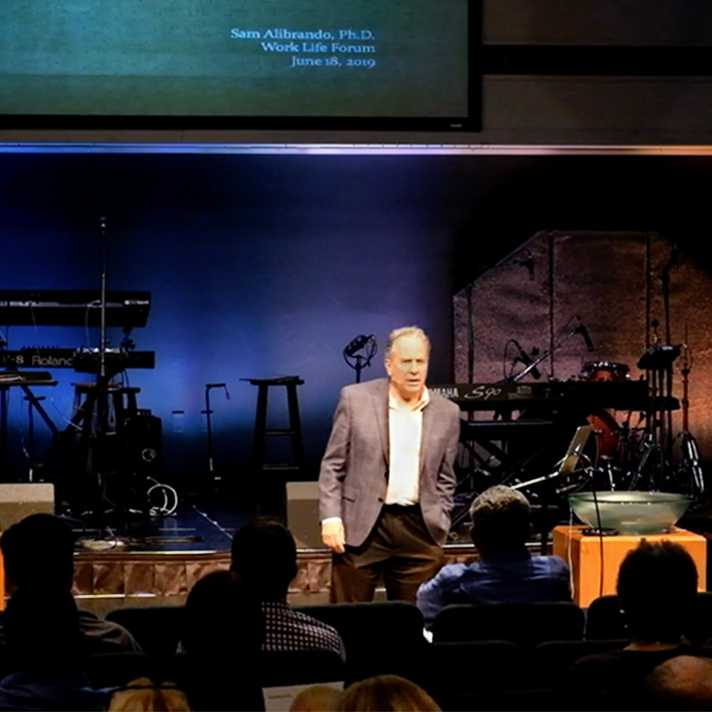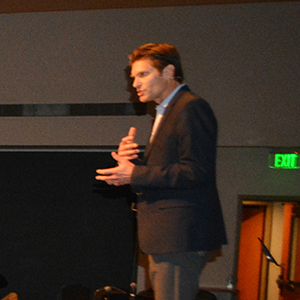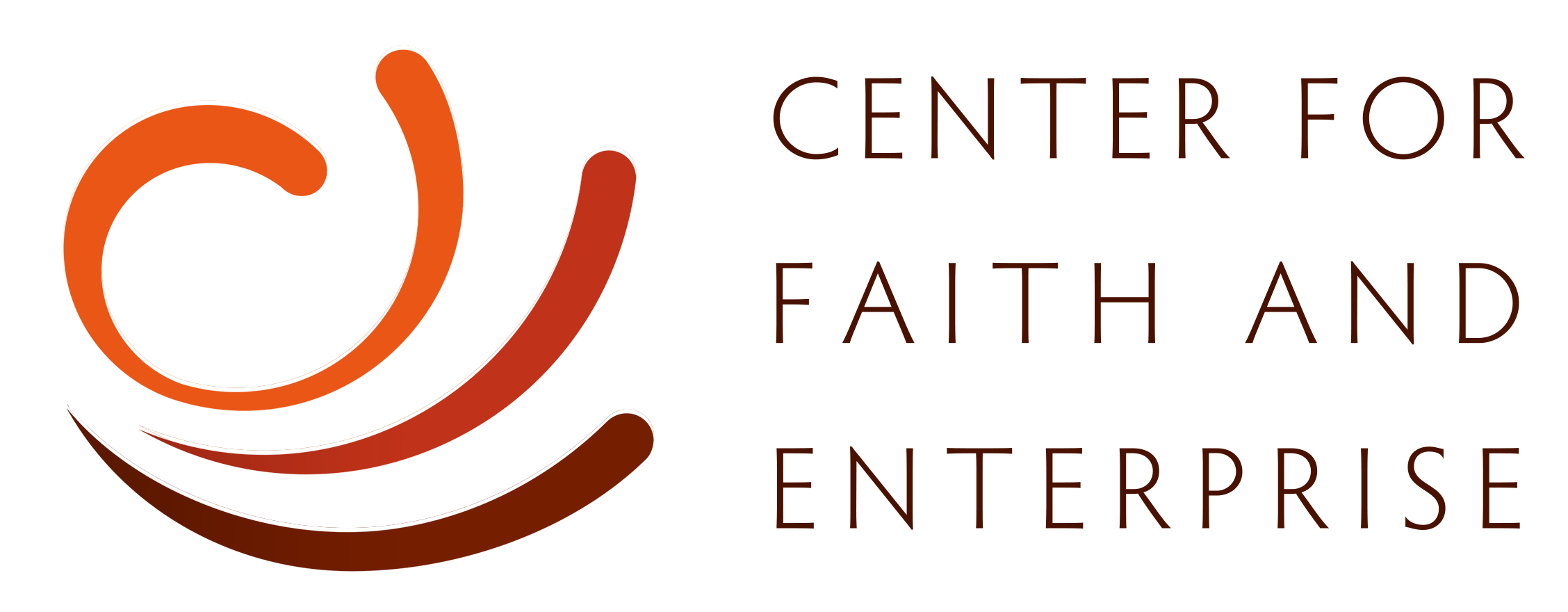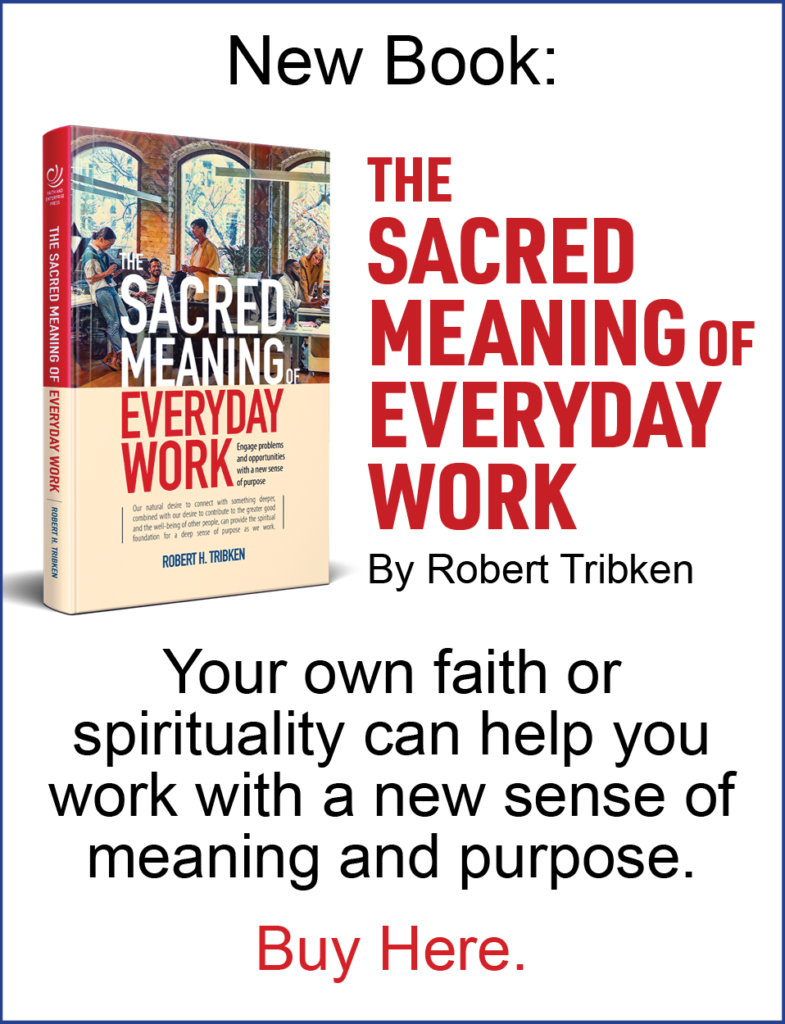Category: Workplace Stress
Work-Related Burnout
Elijah in the Wilderness
After a prolonged struggle with King Ahab and the priests of Baal, the great prophet Elijah was completely exhausted. He journeyed by himself into the desert and asked God to take his life; he then lay down under a broom tree and fell asleep, awaiting death. Elijah’s friends and allies were gone, he had failed to save Israel, and he was too tired to go on.
But an angel sent by God awoke Elijah and gave him food and drink. After more rest, the angel brought Elijah to Mount Horeb to meet God in a cave.
After experiencing a great wind, a powerful earthquake, and a fire, Elijah encountered sheer silence within which he heard the voice of God sending him back out to fulfill his calling. And so Elijah, refreshed, returned with power to the world and did indeed fulfill his calling from God. (Adapted from 1 Kings 19)
From our vantage point, it is not too hard to see Elijah as an extreme case of work-related burnout. He was exhausted, he was without friends, and he felt like a failure. Burnout is a big problem; if we have not experienced it ourselves, we probably will at some point in the future and in any case we probably know somebody who is confronting burnout right now. But there are things that we can do.
Video: Sam Alibrando on Working With Difficult People
 On June 18, the third Work Life Forum featured Dr. Sam Alibrando speaking on the subject “Working with Difficult People”. The event was held at La Canada Presbyterian Church in La Canada, California. The video of Dr. Alibrando’s presentation is now available.
On June 18, the third Work Life Forum featured Dr. Sam Alibrando speaking on the subject “Working with Difficult People”. The event was held at La Canada Presbyterian Church in La Canada, California. The video of Dr. Alibrando’s presentation is now available.
The fulfillment, satisfaction, and enjoyment we find in our work are heavily dependent on the quality of our working relationships. There is very little in our work that can make us as miserable as a painfully difficult working relationship; the pain and stress of a bad working relationship can even bleed over into the rest of our life.
Video: Scott Symington Speaks on Stress at Second Work Life Forum
 At our second Work Life Forum, 199 people heard Dr. Scott Symington preview his forthcoming new book Freedom from Anxious Thoughts and Feelings: A Two-Step Mindfulness Approach for Moving Beyond Fear and Worry. Dr. Symington discussed specific steps that can help us break free from our worries, address the challenges we face more effectively, and live more fully. Along the way presented a ground breaking new tool called the Two Screen Method.
At our second Work Life Forum, 199 people heard Dr. Scott Symington preview his forthcoming new book Freedom from Anxious Thoughts and Feelings: A Two-Step Mindfulness Approach for Moving Beyond Fear and Worry. Dr. Symington discussed specific steps that can help us break free from our worries, address the challenges we face more effectively, and live more fully. Along the way presented a ground breaking new tool called the Two Screen Method.
The event video is available at the link.
Chronic Time Pressure
 When people talk about their more frustrating work-related problems, quite often the issue of time, or the lack of it, comes up. For many people, there is not enough time to get everything done and this can be a serious and chronic source of stress. It seems as though fixing this one problem might make a huge difference in many people’s lives and in their ability to enjoy their work and their leisure.
When people talk about their more frustrating work-related problems, quite often the issue of time, or the lack of it, comes up. For many people, there is not enough time to get everything done and this can be a serious and chronic source of stress. It seems as though fixing this one problem might make a huge difference in many people’s lives and in their ability to enjoy their work and their leisure.
Professor of Psychology Alex Szollos has put forward a very insightful and I believe useful idea. He suggests that chronic time pressure, that feeling of always being short of time, should be seen as an overarching concept that incorporates two related but distinct elements: 1) an objective element, in other words, an actual shortage of time relative to the demands placed on the individual; and 2) a subjective element, in other words, the subjective experience of being harried and rushed pretty much all of the time.
Leaving Work: Might a Ritual Help?
 Some of us have trouble leaving our work behind at the end of the day and have an unfortunate tendency to bring our stress and other pre-occupations home with us. This not only makes it difficult to recharge our batteries, but can also hinder our non-work relationships and activities.
Some of us have trouble leaving our work behind at the end of the day and have an unfortunate tendency to bring our stress and other pre-occupations home with us. This not only makes it difficult to recharge our batteries, but can also hinder our non-work relationships and activities.
Jackie and John Coleman (“Don’t Take Your Work Home with You”) offer a number of ideas that might help. For me, one in particular stands out: “have an end of work habit”. I would like to explore this idea further.
Perhaps we could develop a ritual of some sort to help us make the transition from work. . .
Coping With Stress: When Religion Helps or Hurts
 To prepare for our recent Spirituality for Busy People class, I reread some of psychotherapist and scholar Kenneth Pargament’s classic book The Psychology of Religion and Coping: Theory, Research, Practice. One of his key observations is that while religion can provide relief during times of stress, the actual form of religious coping matters a great deal. According to Pargament:
To prepare for our recent Spirituality for Busy People class, I reread some of psychotherapist and scholar Kenneth Pargament’s classic book The Psychology of Religion and Coping: Theory, Research, Practice. One of his key observations is that while religion can provide relief during times of stress, the actual form of religious coping matters a great deal. According to Pargament:
The seemingly straight forward question, ‘Does religion work,’ could not be answered with a simple ‘yes’ or ‘no.’ Instead, the answer depends on the kind of religion one is talking about, who is doing the religious coping, and the situation the person is coping with. Depending on the interplay among these variables, religion can be helpful, harmful, or irrelevant to the coping process. (p.312)
Preparing Leaders for Crisis: The Value of Theological Education
 We seem to be moving into a period of crisis that will put unusual burdens on leaders.
We seem to be moving into a period of crisis that will put unusual burdens on leaders.
Cultural and institutional changes (and, in many cases, failure) will call for leaders grounded in a broader, deeper perspective. Our religious institutions, including seminaries, could play a critical role in helping us prepare for this future


